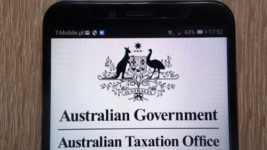What are the Penalties for Tax Fraud in Australia?

A sister and brother have been ordered to pay a total of more than $2.3 million in taxes, administrative costs and interest after a court found that ‘thou shall not pay tax’ is not only absent from the Bible, but any such commandment would not necessarily be enforceable if it were.
Christian missionaries Fanny Beerepoot and her brother Rembertus Cornelis appeared in the Supreme Court of Tasmania on Wednesday, 17 July 2019 for failing to pay around $930,000 in taxes between them.
Representing themselves in court, the pair submitted that paying taxation is against the laws of “Almighty God”.
“We believe that the constitution affirms the fact that the Commonwealth resides within the jurisdiction of the law of the Almighty God and the law of the Almighty God is the supreme law of this land,” they submitted.
The pair said they had paid taxes until 2011, but regretted doing after realising it was against God’s will.
“Transferring our allegiance from God to the Commonwealth would mean rebelling against God and therefore breaking the first commandment,” they told the court.
“As we reject God, the curses upon us become greater, but if we return to God’s teachings there will be healing”, they added.
“We rely on the blessings we receive from God which we give to him and not to an outside entity such as the tax office.”
Supreme Court Justice Stephen Holt challenged the defendants to identify a passage of the Bible that supports their submissions.
“If you can’t find me a passage in scripture or gospel that says ‘thou shall not pay tax’ then can you see I have difficulty finding a starting point”, his Honour stated.
The judge found the defendants’ “… submissions to be honestly and genuinely held beliefs rather than an attempt to avoid tax liabilities.”
However, he added that, “… the Bible effectively said that civil matters and the law of God operate in two different spheres.”
Ms Beerepreet was ordered to pay the ATO a total of $1.159 million, while Mr Cornelis was found to be liable for $1.166 million.
In 2017, the pair had their 2.4 hectare property in Northern Tasmania seized by the Local Council and sold for $120,000 after refusing to pay around $3,000 in rates.
Tax evasion offences in Australia
The payment of taxation is primarily regulated by the Excise Act 1901, Taxation Administration Act 1953 and Criminal Code Act 1995 – all of which are Commonwealth laws which apply across Australia.
The main offences for prosecuting tax fraud, also known as tax evasion, are contained in sections 134.1(1), 134.2(1) and 135.4(3) of the Criminal Code Act (the Act), all of which carry maximum penalties of 10 years in prison.
Section 134.1(1) is headed ‘Obtaining property by deception’ and stipulates that a person is guilty of this offence if:
- the person, by a deception, dishonestly obtained property belonging to another with the intention of permanently depriving the other of the property, and
- the property belonged to a Commonwealth entity.
To establish the offence, the prosecution is therefore required to prove each of the following ‘elements’ beyond a reasonable doubt:
- The defendant acted dishonestly, and
- Engaged in a deceptive act, which
- Resulted him or her obtaining property, such as funds or assets,
- That property belonged to a Commonwealth entity, and
- The defendant intended to permanently deprive the owner of the property.
The defendant is not guilty if the prosecution is unable to prove all of those elements.
Section 134.2(1) of the Act is titled ‘Obtaining financial advantage by deception’ and provides that a person is guilty of this offence if:
- the person, by a deception, dishonestly obtained a financial advantage from another person, and
- the other person was a Commonwealth entity.
Section 135.4(3) is headed ‘Conspiracy to defraud’ and states that a person is guilty of this offence if:
- the person conspired with another person with the intention of dishonestly causing a loss to a third person, and
- the third person was a Commonwealth entity.
Subsection 135.4(4) makes clear that to be convicted of the offence, it is not necessary for the prosecution to prove that the defendant knew the third person was a Commonwealth entity.
Alternative offence
An alternative to the above offences is contained in section 135.2(1) of the Act, which is titled ‘Obtaining financial advantage’ and carries a much lower maximum penalty – 12 months rather than 10 years in prison.
A person is guilty of obtaining a financial advantage if the prosecution can prove beyond reasonable doubt that:
- the person engaged in conduct as a result of which he or she obtained a financial advantage for himself or herself from another person,
- the person knew or believed he or she was not eligible to receive that financial advantage, and
- the other person was a Commonwealth entity.
Where the prosecution case for tax fraud appears to be strong, a defence lawyer may be able to have an offence which attracts a maximum penalty of 10 years in prison withdrawn and replaced by this less-serious offence.
Suspected of tax evasion?
If you have been accused of evading tax, call Sydney Criminal Lawyers anytime on (02) 9261 8881 to arrange a conference with an experienced defence lawyer who will be able to advise you about how the law applies to your particular situation, your options and the best way forward.
A good criminal defence lawyer may be able to persuade the Australian Taxation Office or the Commonwealth Office of the Director of Public Prosecutions not to commence proceedings in the first place, or have them withdrawn for insufficient evidence or downgraded if charges are brought, or dismissed if the case proceeds to a court hearing.






